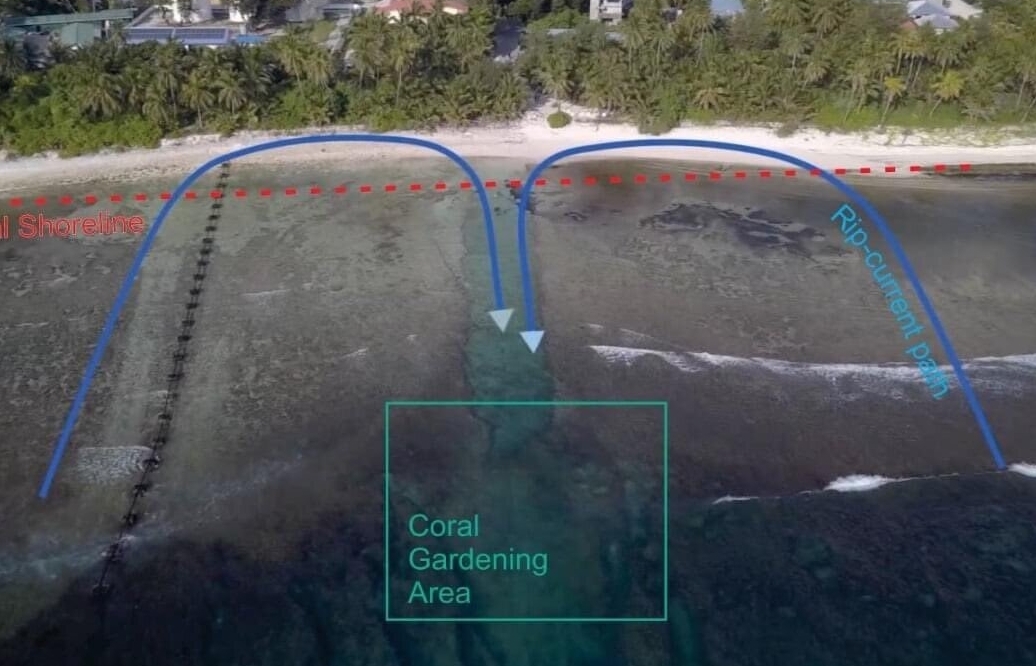Fuvahmulah, Maldives – In a tweet earlier this week, Fuvahmulah Surfing Association (FSA) have said that they are working on a proposal for a United Nations Development Programme (UNDP) grant to tackle issues created by the sea channels they no longer use.
FSA have said that they identified that 8 channels created in Fuvahmulah for accessing the island, which were established before the harbor currently in use was built, are a massive factor contributing to land degradation of Fuvahmulah.
The second reason for the proposal according to FSA, is to stop rip currents created by these channels which have claimed many lives and continue to do so. “These channels no longer serve a purpose.” stated FSA. ” However, the channels create an artificial path to the formation of rip currents and have been eroding the surrounding shoreline of each of these channels for years or decades.”
FSA explained that the project’s aim is to provide a natural, sustainable and environmentally friendly solution to a man made problem, through coral gardening or asexual coral propagation at the far end of the channels and restoring the reef to its original level, hence effectively stopping the deadly and devastating rip currents and ensuring the safety of citizen’s using the area for leisure activates.
“And by stopping the rip currents, bringing an end to the land degradation of the surrounding beaches and restoring the natural beach formation process and loss of life. This objective falls directly within the focal area of coastal zone management and rehabilitation.” noted FSA in their proposal.
Explaining that they have discussed the proposal with Fuvahmulah City Council, FSA has said on twitter that they will try their best to proceed with the project, requesting the community to “get behind this cause and help us achieve this ever so important overdue objective.”
This comes after a boy drowned this Saturday in Fuvahmulah, after saving the lives of 2 girls who were drowning after a sudden riptide.





